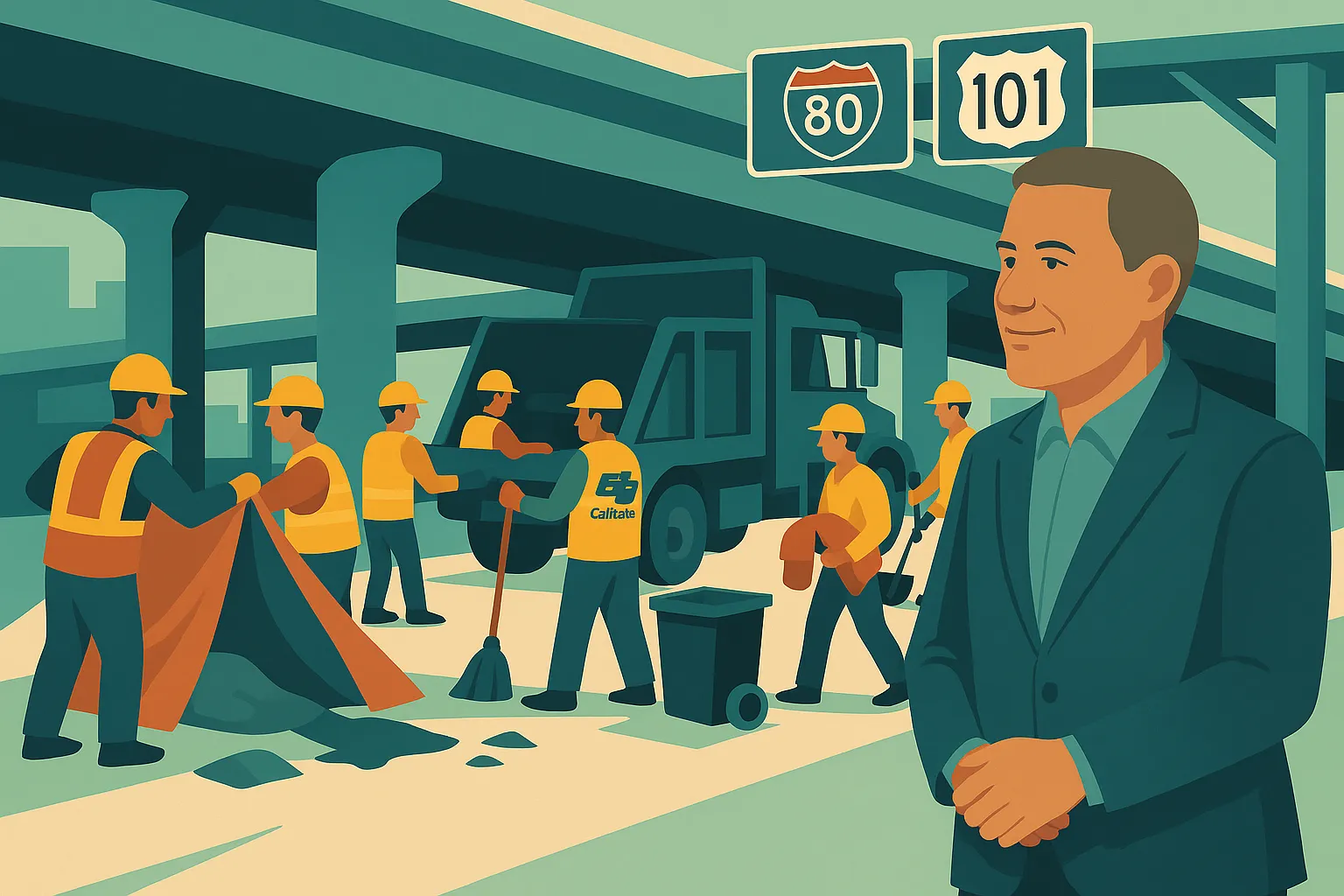
Mayor Lurie secures state cooperation to tackle homeless camps on freeway property, expanding the city's enforcement capabilities with measurable results.
The Facts
San Francisco can now clear homeless encampments on Caltrans property within city limits after Mayor Daniel Lurie announced a partnership with the state agency Wednesday. The agreement covers specific locations along U.S. 101 and Interstate 80, including areas near Market and Octavia streets, South Van Ness and 13th Street, and the Fifth Street on- and off-ramps.
City crews will prioritize sites that pose health and safety risks, such as encampments close to traffic or near unstable structures. Some costs will be reimbursed by the state, and the partnership aims to connect homeless people to city services and housing.
The Context
Before this agreement, the city needed state permission to work on properties near freeways, even within San Francisco's boundaries. Homeless encampments on Caltrans property had largely avoided sweeps, becoming last refuges for camps after the city's aggressive tent removal following a Supreme Court ruling last summer.
The partnership builds on Mayor Lurie's enforcement-plus-services approach, which has driven a 40% increase in shelter placements and reduced citywide encampments by 25% since March. Safety concerns have mounted, with several fires under highways and an alleged arsonist causing an explosion near an auto-repair shop.
The GrowSF Take
This partnership demonstrates effective governance: identifying bureaucratic barriers and working across agencies to solve them. Rather than accepting that state property was off-limits, Mayor Lurie negotiated a practical solution that expands the city's enforcement capabilities while connecting people to services.
The 40% increase in shelter placements shows this approach delivers results, not just enforcement theater. When government agencies coordinate effectively instead of operating in silos, they can tackle complex problems that span jurisdictions and provide real solutions for both public safety and human dignity.
Generate a Personalized Email to the Board of Supervisors
To:
Sign up for the GrowSF Report
Our weekly roundup of news & Insights